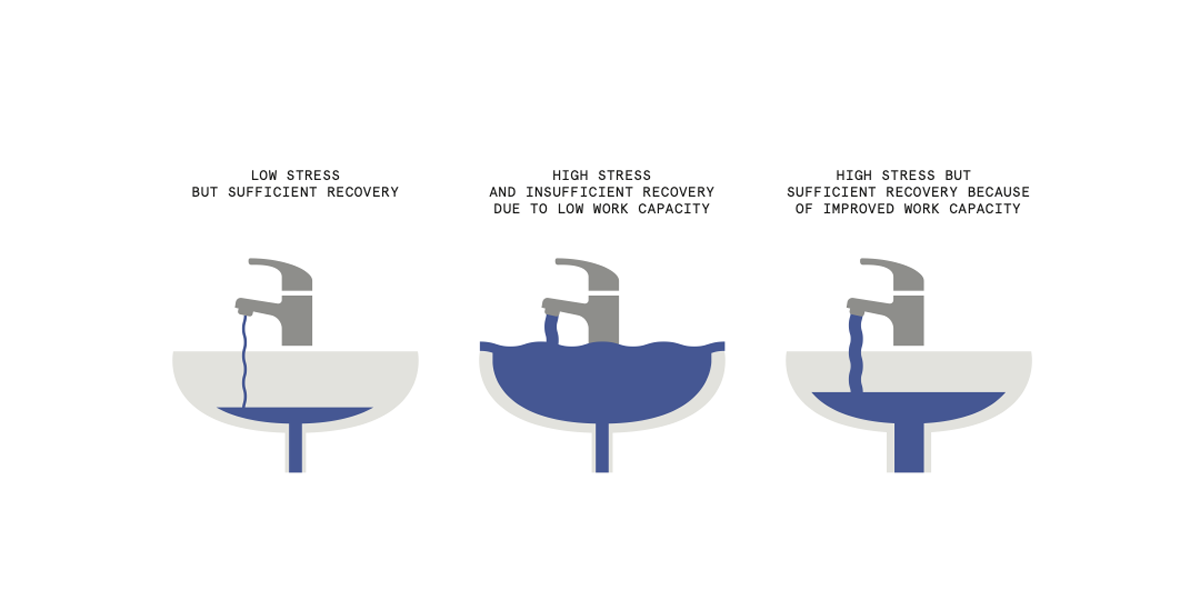Stress and fatigue are normal by-products of chasing after a goal. But what happens when the stress turns to chronic stress? You’ve got burnout on your hands, which could (and likely will) lead to failure.
Think of your work capacity like a sink with a drain. Imagine the water coming out of a tap of the sink as your training stress. Now, imagine the amount of water released into the drain is your work capacity.
When training with a low level of stress, there is a slight trickle of water coming out of the tap (training stress) and it does not take a large drain hole to drain the water (work capacity and recovery).
As you become stronger, quicker, and have more endurance, you will need more training stress to improve. You need more water to come out of the tap, but equally, you need a wider hole/pipe to drain it.
A small drain means you can only tolerate a small amount of water. The wider your drain, the easier the water flows, the more water you can put in your sink, and the greater the improvements you will see, all the while ensuring your sink does not overflow (overtraining).
If you want to cultivate a high capacity, you have to learn how to recover well. Win when it counts, not when it kills you.
Photography by: Jeremy Lapak

